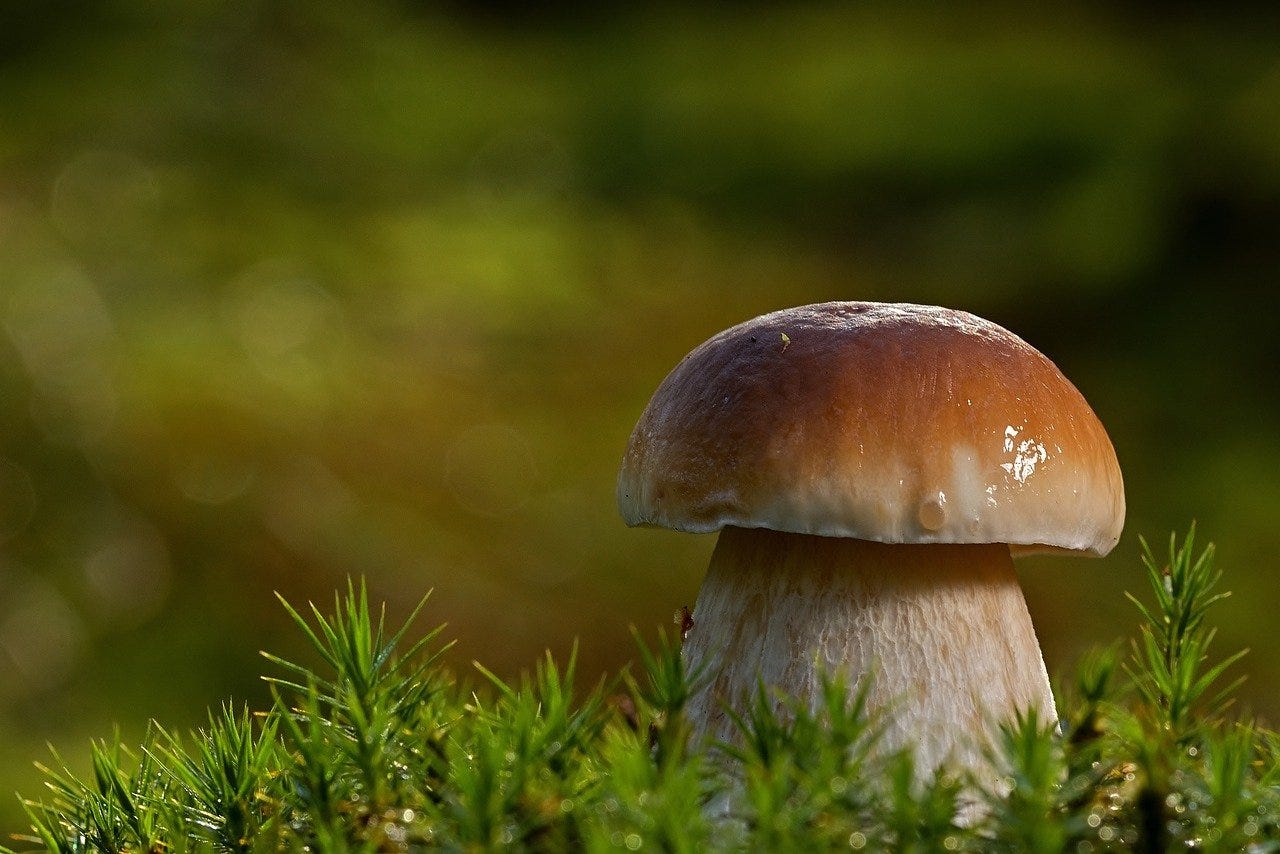Why Germans Love Foraging for Wild Mushrooms
Every autumn, Germans head into the forests to forage for wild mushrooms — a hobby shaped by law, history, superstition and food culture.
Foraging for wild mushrooms is not a fringe hobby in Germany, but a deeply ingrained cultural practice — one governed by strict rules, strong traditions, and an almost ritualistic sense of secrecy.
Last weekend, when walking down an unassuming backstreet in an east German town, I came across a man bent down behind a tarpaulin-covered table.
When I came closer I realized he was cleaning some chanterelle.
“Oh, where did you collect those?” I asked somewhat too bluntly, hoping for a hot tip on a nearby mushroom spot.
“Poland officially,” he said, shiftily. After a moment’s pause, he added “unofficially, Groß Köris.” There were good reasons for his shiftiness: in Germany, mushroom foraging is legal — but only for personal use, and exceeding the Eigenbedarf limit can result in fines.
He pulled back the tarpaulin to reveal a whole stack of the delicacy that “a friend” had gathered in the forest.
If I wanted to buy a punnet I’d have to put it inside two bags just in case some snooping passers-by looked too closely, he told me.
While I cannot confirm whether an exchange of cash ensued, the incident made clear: after decades of fear that radioactive fallout from Chernobyl had made even edible wild mushrooms toxic, the seductive and illusive Waldpilz is back.
Searching for wild mushrooms is now such a popular past-time in Germany that you are only allowed to pick them for personal use. Much like with marijuana, carrying more than the official Eigenbedarf limit could land you in hot water with the law.
Everything that is sold at the markets officially comes from Poland.
Even the word conjures positive vibes. A Glücks-pilz is someone or something which brings unexpected good fortune. (The 1960s nickname for the Beatles - die Pilzköpfe - is probably somewhat more ambivalent.)
The Steinpilz is to autumn what Spargel is to early summer. So the German gourmand isn’t deterred by the occasional headline about a whole family dying after mistaking the deadly Knollenblätterpilz for a field mushroom. Nor are they put off by the rather unappetizing work that goes into preparing the fungi.
Take the popular Butterpilz: a harmless enough name in German - but it is known as Slippery Jack in English for good reason. The brown skin is slimy to the touch and hides a pallid yellow sponge underneath. And, more often than not, it is riddled with maggots.
When searching for Butterpilze, one is advised to remove the skin immediately and then slice the mushroom down the middle to assess the level of infestation. (A moderate amount of maggots is acceptable).
Once gathered, the mushrooms can be eaten immediately or dried for the winter. During the drying process, the shrivelling fungi emit an odour that some enthusiasts compare to wet dog, others to human urine. (Specialist forums are full of chatter on just what the best comparison is.)
Perhaps this Ekeleffekt is part of the allure. At any rate, it is not just the delicate flavour that lures Germans into the forests. In a country where the healing powers of natural remedies are more highly prized than in the English-speaking world, mushrooms are increasingly sought after for their health benefits.
These ‘super heroes of the earth’ guard against both dementia and cancer while keeping mind and body sharp, German health bloggers insist.
Meanwhile the symbiotic relationship between trees and the much-loved Röhrling fungus is particularly en vogue among ecologically-minded urbanites, who anxiously seek antidotes to the seemingly out-of-kilter relationship between modern man and his environment.
Still, some veteran mushroom enthusiasts’ noses have been put out of joint by the current hype.
Freiburg mycologist Rüdiger Klein recently complained to the German Press Agency that a “real hunting fever” breaks out in autumn, with mushroom pickers trampling down sensitive biospheres with just one thing in mind: filling up their baskets.
Miffed that the modern Pilzsammler shows so little interest in the fascinating diversity of inedible fungi, Klein pointed out that “we don’t live in the post-war period. We have enough to eat.”
He is of course correct. There is an abundance of perfectly formed, predictably bland fruit and veg in German supermarkets - all clearly labelled and safely wrapped in cellophane… which goes some way towards explaining why ever more people are heading to the woods to hunt for their next meal.



